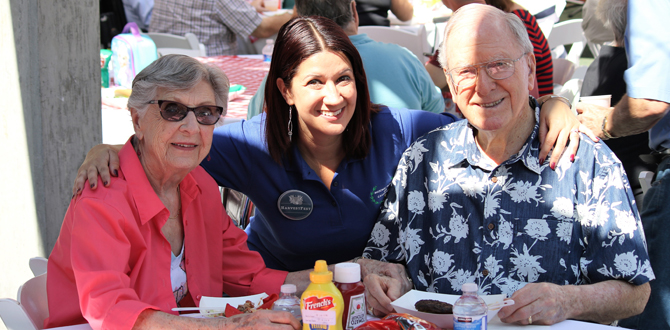This article provided by Comfort Keepers, an independent caregiving provider in the Masonic Value Network
A Big Piece of the Puzzle
When it comes to feeling our happiest and healthiest, two of the most significant factors are undoubtedly physical and mental wellbeing. There’s no question that staying fit, following a healthy diet, and keeping the brain sharp, are pivotal in shaping the way we live our lives. But what about social wellness? Often described as one’s ability to communicate and maintain meaningful relationships with others, social wellness is just as vital as physical and mental wellness, and requires the same level of maintenance. As we age, it’s especially important that we foster positive social engagement to not only safeguard against isolation, but to also improve various aspects of our physical health.
Why Is It Important?
Let’s face it, almost every aspect of life changes as we reach our senior years. Children may move out of state, friends and family may pass away, and certain health conditions may make it harder to fully enjoy the things we love doing. And as these changes occur, it’s important that we talk about them. Without a support system of friends and family in place, many of life’s events can slowly begin to take their toll on us and potentially lead to a downward spiral of loneliness, isolation, and even major depression. But by nurturing current relationships and taking steps to build new ones, seniors can create a reliable network that allows them to learn new skills, view things from different perspectives, and see how others effectively manage the challenges of aging.
Though it may go without saying, maintaining social wellness brings about a number of other health benefits as well. Not only can it help strengthen our immune system, but it can lead to better sleep and increased productivity. Studies also show that increased socialization can enhance our cognitive abilities and even reduce our risk of Alzheimer’s and dementia. In fact, one study showed that socially active seniors had a 70% lower rate of cognitive decline than those who were less socialized.
What Can Seniors Do?
One of the barriers some seniors may face is that they may not know what opportunities are available to them. That’s why we’ve put together a list of some of the ways seniors can begin to build and maintain their social connections:
- Volunteer, or become involved in community efforts and activities.
- Join a senior center, and make connections with like-minded individuals.
- Continue learning through online courses or those offered by universities and community colleges.
- Find a new hobby or interest, or revisit old ones.
- Invite a friend or friends over for coffee or tea.
- Take a part-time job.
- Offer assistance to someone in the family.
- Join an exercise group or class.
- Reach out to those at a church, synagogue, temple, or other place of worship to sign up for upcoming events.
- Utilize social media to stay connected with friends and families (near and far).
Comfort Keepers® Can Help
At Comfort Keepers®, we understand the importance of maintaining social wellness and the value it can bring to seniors’ lives. Our trusted caregivers not only provide meaningful companionship, but they can also help in getting seniors to and from places they need to go. Whether it’s a trip to the senior center to visit friends, or to the local college for a weekly class, we’ll be there to help. We also offer technology solutions that can enhance socialization and keep seniors connected to their loved ones. For more information about Comfort Keepers’ services and to find a local office near you, call (888) 778-9619.
Fast Fact
A recent study showed that, each year, Medicare spends nearly $7 billion more on seniors who aren’t
socially active.
References:
Psychology Today. “The Health Benefits of Socializing” by Angela K. Troyer Ph.D. C. Psych. Web. 2018.
Everyday Health. “How to Stay Socially Engaged as You Age” by Krisha McCoy. Web. 2018.
How Stuff Works – Health. “Top 5 Ways for the Aging to Remain Socially Engaged” Web. 2018.

